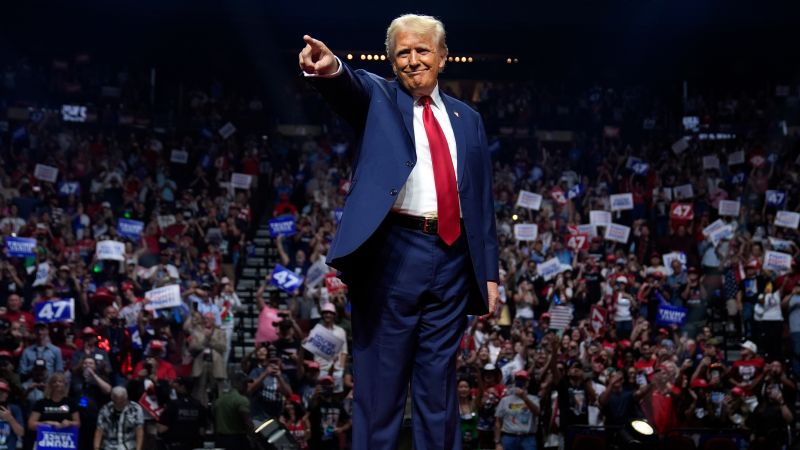Donald Trump’s campaign is undergoing a strategy shift to better adapt to the fast-changing political landscape after President Joe Biden emerged as his new opponent less than four months before Election Day. The campaign plans to increase Trump’s schedule, focusing on holding several events each week and visiting two states in a day. This new aggressive approach, described as “Trump on steroids,” aims to generate momentum and engagement leading up to the November election.
As part of this new strategy, Trump is preparing for his September 10 debate with Vice President Kamala Harris by meeting with Republican lawmakers, policy experts, and outside allies to discuss policy issues. Trump’s preferred method of debate preparation involves studying his opponent and fine-tuning his messaging in a more casual setting. Former Hawaii Rep. Tulsi Gabbard has been assisting Trump in understanding Harris’ debate style based on her previous interactions with Harris during the Democratic presidential debates.
The increased pace of campaign activity is a response to the enthusiasm boost among Democrats following Harris joining Biden on the ticket. Trump’s campaign is planning an intense schedule of events, focusing on battleground states where mail-in ballots will soon be sent out and early voting locations will open. The campaign also aims to strengthen its presence in key states and deploy surrogates for get-out-the-vote events in preparation for the upcoming election.
Trump’s campaign acknowledges the need to focus on policy over personal attacks and has brought in new advisers to assist in refining the approach. Despite Trump’s tendency to veer off script, his campaign hopes to maintain a sharper focus through smaller, more intimate events in addition to his larger rallies. However, the challenge of managing Trump’s unpredictable nature remains, as evidenced by his recent actions during campaign stops in North Carolina and Michigan.
In addition to ramping up his own campaign activities, Trump’s running mate, Ohio Sen. JD Vance, is expected to increase his schedule and focus on key battleground states, particularly those that Trump won in 2016 but lost to Biden in 2020. Vance will emphasize his background in the Rust Belt and connect issues like the opioid epidemic to immigration in these states. Despite initial controversy surrounding Vance’s comments, Trump views him as a strong political asset and plans for him to have a more visible presence in the coming weeks through media appearances and outreach efforts.
Overall, the Trump campaign is entering a crucial period, characterized by an aggressive campaign schedule, strategic focus on key battleground states, and efforts to refine messaging and debate preparation. The campaign aims to harness momentum and engagement while countering the enthusiasm among Democrats following Harris’ addition to the ticket. By intensifying campaign efforts and deploying resources strategically, the Trump campaign seeks to gain significant ground in the lead-up to the November election.


